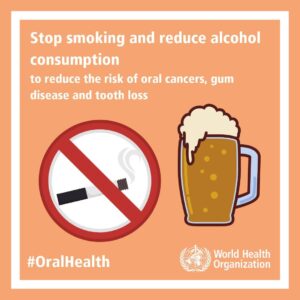Strategies to Overcome Smoking Addiction and Alcohol
Understanding the Dual Addiction
Overcoming the combined addiction to smoking and alcohol presents unique challenges. Both substances are often linked due to their similar social settings and the way they affect the brain’s reward system. Nicotine and alcohol stimulate dopamine release, leading to pleasurable feelings that reinforce their use. Acknowledging the interplay between these addictions is crucial in developing an effective strategy for quitting both.
Setting a Dual Quit Date and Preparing
Choosing a specific date to quit both smoking and drinking can be a powerful motivator. This date should allow time for mental and physical preparation. Inform your support network of your decision and seek their encouragement. Remove all smoking and drinking paraphernalia from your environment. Create a list of reasons for quitting both habits and keep it visible to remind yourself of your commitment.
Utilizing Nicotine Replacement Therapy (NRT) and Medication
Nicotine Replacement Therapy (NRT) can help manage the withdrawal symptoms associated with quitting smoking. Options such as patches, gum, and lozenges can provide a controlled dose of nicotine without the harmful effects of smoking. For alcohol addiction, medications like naltrexone or acamprosate may reduce cravings and withdrawal symptoms. Consult a healthcare provider to determine the best combination of treatments for your needs.
Seeking Comprehensive Behavioral Support
Combining smoking and alcohol cessation often requires robust behavioral support. Cognitive-behavioral therapy (CBT) can help address the underlying psychological triggers for both addictions. Support groups, such as those offered by Alcoholics Anonymous (AA) and smoking cessation programs, provide community and accountability. Engaging in dual-focused counseling can address the specific challenges of quitting both substances simultaneously.
Adopting Healthy and Engaging Alternatives
Finding healthy alternatives to smoking and drinking is essential for long-term success. Regular physical activity can reduce stress and improve mood, making it easier to cope with cravings. Engaging in hobbies or activities that interest you can provide a positive distraction and occupy your time. Developing a routine that includes exercise, healthy eating, and hydration can support your overall well-being and reinforce your commitment to a substance-free lifestyle.
Share this:
Category
- ! Без рубрики
- 1
- 2
- AI in Cybersecurity
- Alcohol Awareness
- Best way to quit alcohol
- bhnov
- blog
- Bookkeeping
- Budgeting Tips
- chnov
- Deaddiction center
- diabetes
- ed
- Financial Independence
- FinTech
- Forex Trading
- fr
- Healthy Life
- hello world
- How to quit alcohol
- IT Vacancies
- IT Образование
- Mindful Spending
- Money Management
- Money-Saving Strategies
- New Post
- nl
- pbnov
- Personal Finance
- potency
- punov
- rybelsus
- se
- Smart Money Choices
- Sober living
- Sober Savings
- Software development
- test content
- Wealth Building
- Форекс Обучение
